In today’s competitive business landscape, understanding the intricacies of contract manufacturing can make the difference between successful product launches and missed opportunities. Among these considerations is the concept of minimum order quantities (MOQs), which can significantly impact a company’s cost structure, profitability, and supply chain efficiency. In this article, we explain the main factors that affect MOQs as well as share strategies to manage minimum order quantities.
Why Do Contract Manufacturers Set Up Minimum Order Quantities?
Contract manufacturers set up MOQs as a requirement that you must meet in order to engage their services. These represent the threshold volume of products a business must commit to in a single order. Minimum production quantities are set to ensure efficient production processes and cost-effectiveness.
By producing larger volumes of a product, contract manufacturers can optimize their resources and reduce per-unit production costs. This allows them to offer competitive pricing and maximize profitability for both parties involved. Additionally, meeting minimum order quantities helps contract manufacturers maintain consistent workflow and minimize downtime between orders. It also enables them to negotiate better terms with suppliers for raw materials or components needed for production.
Terms and Conditions Usually Included in a Contract Manufacturing Agreement
What Factors Affect Minimum Order Quantities?
The Production Process
Production costs often include expenses related to raw materials, labor, equipment setup, and overhead costs. Contract manufacturers aim to balance their fixed overhead costs with the benefits of larger production runs, leading to tiered MOQs. In addition, certain manufacturing processes require specific setup or changeover times, making it more economical for contract manufacturers to produce larger batches at once. By doing so, they can optimize their resources and reduce costs.
Market Conditions
Contract manufacturers need to ensure that there is sufficient demand for a product before committing to producing it in large volumes. This helps them avoid excess inventory and ensures that their production runs are efficient and cost-effective.
Profit Margins and Business Goals
Profit margins and business models impact minimum order quantities, with higher volumes resulting in lower unit costs. Higher volume orders often result in lower unit costs, allowing manufacturers to maintain healthy profit margins while meeting customer demands.
Industry Standards for Minimum Order Quantities
MOQs vary across industries due to different production processes, market conditions, and supply chain dynamics. Industries with high production costs or intricate manufacturing processes may necessitate higher MOQs to ensure profitability. Conversely, industries with simpler processes might have more lenient MOQs.
For instance, in the contract electronics industry, larger production runs allow for economies of scale, reducing per-unit costs and increasing overall profitability. The contract manufacturing pricing model often takes these minimum order quantities into account, as they impact inventory costs and ongoing tooling costs.
What Should I Consider When Selecting a Contract Manufacturer?
What Are the Benefits of Meeting Minimum Order Quantities?
By fulfilling minimum order requirements, you can also benefit from lower upfront tooling costs. Many contract manufacturing providers charge upfront fees to cover the cost of creating molds or tooling required for production. Meeting MOQs ensures that these costs are spread across a larger number of units, allowing you to leverage a lower price per unit.
Contract manufacturers often provide price reductions for larger quantities, enabling businesses to obtain competitive prices per unit. This, in turn, supports healthier profit margins when products are sold at the retail level. Additionally, economies of scale gained from larger production runs can further reduce the cost per unit, contributing to enhanced profitability.
Furthermore, meeting minimum order quantities ensures a consistent supply of products. Since contract manufacturers rely on stable demand to optimize their own operations, placing larger orders helps you establish a reliable partnership with the manufacturer.
Strategies for Managing Minimum Order Quantities
Demand Forecasting
Accurate demand forecasting is central to determining appropriate order quantities. By analyzing historical sales data, market trends, and seasonal fluctuations, businesses can align their production volumes with expected demand.
Collaborative Production Planning
Close collaboration with the chosen contract manufacturing partner can provide insights into their production capacity, lead times, and constraints. This collaboration enables businesses to adjust their order quantities according to the manufacturer’s capabilities and optimize production scheduling.
Negotiation and Flexibility
When negotiating with contract manufacturers, businesses should seek a balance between their own requirements and the manufacturer’s operational constraints. Flexibility can be built into the agreement to allow for adjustments based on changing market conditions or unforeseen demand fluctuations.
Product Design and SKU Rationalization
Streamlining product designs and reducing the number of variations can enable businesses to consolidate production runs. This can help meet MOQs more easily and efficiently while also reducing overhead costs associated with managing multiple product variants.
Batch Production
Batch production allows businesses to produce a specific quantity of products in a single production run. By strategically planning batches that align with MOQs, companies can optimize production efficiency and reduce setup costs per unit. This approach also enables quicker adjustments to market demands and facilitates the introduction of new product variations.
Inventory Management
Maintaining an optimal level of inventory is crucial for meeting MOQs while avoiding excessive carrying costs. Businesses can adopt inventory management tools and techniques to ensure that products are replenished in a timely manner, preventing stockouts without overburdening working capital.
Collaborative Marketing Strategies
Collaborating with the contract manufacturer on marketing efforts can stimulate demand and drive larger order volumes. Joint marketing campaigns, promotions, and discounts can incentivize customers to place orders that align with MOQs, benefiting both the business and the CM.
Diversified Product Offerings
Businesses can explore expanding their product range to include complementary items that share manufacturing requirements. This can help distribute production volumes across multiple SKUs, potentially enabling the business to meet MOQs even when demand for individual products is lower.
Are There Exceptions to Minimum Order Quantity Requirements?
While MOQs are generally a standard practice, there are instances where exceptions might apply:
- New Product Launches: Manufacturers might offer more lenient MOQs for new products to accommodate market testing and initial product launches.
- Customization: If products require substantial customization, a contract manufacturer might be willing to negotiate lower MOQs due to the added complexity.
- High-Value Orders: Contract manufacturers could reconsider MOQs for high-value orders that offer substantial profit potential, even if they fall below standard requirements.
Can a Contract Manufacturer Assist with Product Design and Development?
Tips for Finding Contract Manufacturers With Flexible Order Quantities
Identifying contract manufacturers with flexible MOQs requires thorough research and due diligence. Here are tips to aid the search:
- Network and Referrals: Leverage industry networks and seek referrals from business partners or associations to find CMs known for accommodating varying order quantities.
- Supplier Directories: Online supplier directories and industry-specific platforms often provide information about CMs, including their MOQ policies.
- Customization Expertise: Look for CMs with a track record in customization, as they might be more open to working with businesses that require lower quantities of unique products.
- Communication: Initiate direct communication with potential CMs to discuss their MOQ requirements and explore the possibility of flexibility.
- Start Small: If possible, initiate a trial run with a potential CM to assess their capabilities and willingness to accommodate smaller orders before committing to a larger partnership.
Unlock Your Production Potential With a Reliable Contract Manufacturing Partner
At Alpha Contract Manufacturing, we understand that every business journey is unique, which is why our services are designed to seamlessly align with your specific needs. We can offer expert insights and work closely with you to optimize designs, streamline production, and exceed your expectations. Our team of seasoned professionals brings a wealth of industry knowledge and cutting-edge technology to every project. From concept to execution, we employ the latest techniques to ensure your products meet the highest quality standards. Your success is our success.
Contract Manufacturing Services
Frequently Asked Questions
How Do Contract Manufacturers Determine Their Minimum Order Quantities?
Are There Any Penalties for Not Meeting the Minimum Order Quantity Requirements?
Can Contract Manufacturers Adjust Their Minimum Order Quantities Based on Market Demand?
Are There Any Alternatives to Meeting the Minimum Order Quantities, Such as Partial Shipments or Phased Production?







